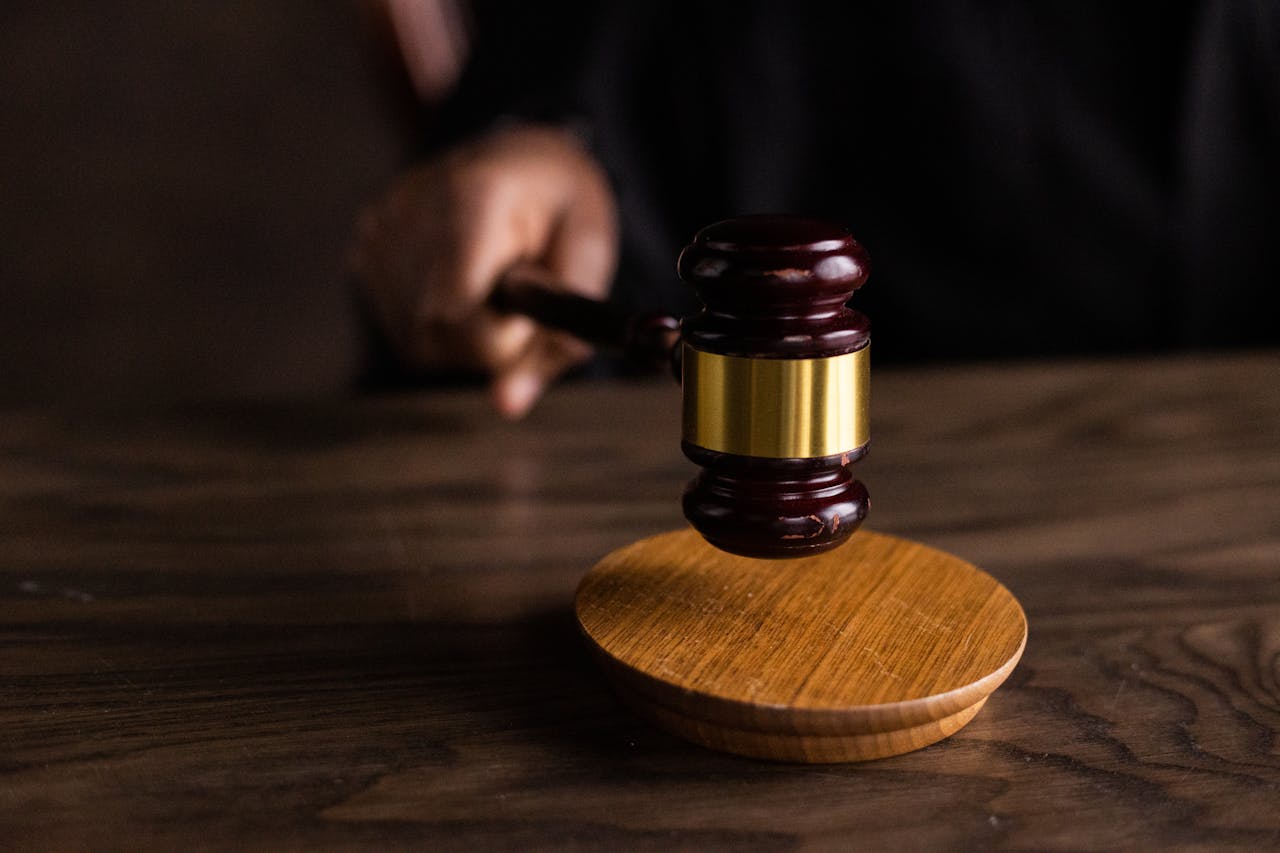News
View
- All posts
- 000港元資助
- 000的罰款
- 100萬港元的資助
- 100萬港元資助
- 100萬港幣
- 15億元港幣
- 1億元
- 1新幣
- 2024公眾假期
- 2024勞工假期
- 2024年創業指南
- 2024年政策更新
- 2024年施政報告
- 2024年美國總統選舉
- 2024年香港公眾假期
- 2024施政報告
- 2024施政報告懶人包
- 2025
- 2025中小企融資
- 2025公眾假期
- 2025創業
- 2025勞工假期
- 2025商標
- 2025報稅小貼士
- 2025年
- 2025年5月2日
- 2025年報稅新變化
- 2025年新商業智慧
- 2025年新報稅
- 2025年新挑戰
- 2025年新政策
- 2025年職場新思維
- 2025年香港公眾假期
- 2025會計趨勢
- 2025財政預算案
- 2025財政預算案懶人包
- 2025財政預算案直播
- 2025財政預算案重點
- 2025香港政府資助
- 2026公眾假期攻略
- 2026創業
- 2026行銷
- 2026電商趨勢
- 24小時即時小額跨境匯款服務
- 37億港元
- 3800億元港幣
- 3900億元港幣
- 4 steps
- 4 Types Of Team Conflict
- 5萬資助
- 7000億港元
- 7000億港元的發債
- AA
- accountant for taxes
- Accounting Service
- Accounting Software
- Accounting Software For Business
- Achieve Goals
- Acknowledge Your New Role
- Additional Services
- administration of estates
- administrative services
- advantages of joint ventures in China
- affordable divorce lawyer Hong Kong
- Affordable travel insurance Hong Kong
- ai
- ai engineers
- ai jobs
- AI 生活
- AI信貸評級
- AI取代人類
- AI技術
- AI技術普及
- ai時代
- AI智能
- AI智能會計
- AI會計
- ai模型
- AI行業
- AI行業 改變
- AI貸款
- ai軟體
- aml
- annual leave calculation hk
- annual leave calculation hong kong
- annual leave hk
- annual leave hong kong
- annual leave in hong kong
- annual return
- Ant Perspective
- apply bno
- apply bno hk
- apply bno hong kong
- apply bno in hong kong
- apply bno visa
- apply for a tin number
- apply for business credit card
- Articles of Association
- artificial intelligence
- Assess financial situation
- Attract Potential Customers
- Attract Top Talents
- Auding
- audit
- audit hk
- Auditing
- audit會計
- Bad Debts
- balloon games
- balloon games for adults team building
- balloon games for employees
- balloon games for team building
- bank loans
- be a better leader
- best business credit cards
- best divorce lawyers in Hong Kong
- Best insurance plans Hong Kong
- best lending rate hsbc
- best place to have team building
- best places for team building
- best team building activities
- biggest family businesses
- bir56a
- BIR60
- bno visa application
- booking
- bookkeeping
- brand loyalty
- Brand Visibility
- british company
- BR續期
- BR罰款
- BR過期
- bud
- BUD Aplication
- bud application
- BUD Fund
- bud fund application guide
- bud fund hong kong
- bud funding
- bud hk
- bud hkpc
- bud hong kong
- bud 不可報銷
- bud 专项 基金
- bud 報銷
- bud 專項 基金
- bud 專項 基金 申請
- BUD 專項基金
- bud 申請
- bud 申請 資格
- bud 申請易
- bud 計劃
- bud 資助
- bud 開支
- bud 電 商 易
- bud 香港
- budfund
- BUD企業支援
- BUD加碼
- BUD加碼15億
- BUD基金
- BUD基金特點
- bud審批加速
- BUD審批手續簡化
- BUD專項基金
- BUD專項基金2023
- BUD專項基金懶人包
- BUD專項基金注資10億元
- BUD專項基金申請攻略
- BUD專項基金稅
- BUD專項基金資助上限
- bud專項資金2025
- BUD常見問題
- bud成功例子
- bud成功案例
- bud成功案例分享
- BUD投資策略
- BUD攻略
- BUD最高補助
- bud案例
- BUD注資15億元
- bud申請
- BUD申請指引
- BUD申請條件
- BUD申請流程
- BUD申請資格
- bud申請顧問
- bud資助
- BUD資助上限
- BUD資助方式
- BUD資助比例
- bud資助範圍
- BUD資助計劃
- bud電商易
- build strong presence
- business company registration number
- business credit card
- business development
- business expense record keeping
- business funding
- business growth
- business guide
- Business in China
- business interview questions and answers
- business invoice
- business loan
- Business loan calculator
- Business operation efficiency improvement strategy
- business plan
- business registration
- business registration certificate hong kong
- business registration hk
- business registration hong kong
- business registration office hong kong
- Business stamp Hong Kong
- business success
- business to the next level
- Business Visa
- bvi
- BVI Business Companies Act
- BVI公司開戶
- BVI公司開戶流程
- BVI離岸公司
- Career Opportunities
- case
- Cash Flow Management
- CBAM
- CDTA
- CEO
- Certified Copy
- Certified True Copies
- certified true copy
- certified true copy點做
- change of directors
- chatgpt
- chatgpt使用
- chatgpt咒語
- chatgpt懶人教學
- chatgpt懶人版
- China Company Registration
- china dividend withholding tax
- china green card
- china joint venture benefits
- China Visa
- china visa hong kong permanent resident
- China visa process in Hong Kong
- china withholding tax rate
- china work visa
- china work visa application
- china work visa processing time
- china work visa requirements
- china work visa types
- China's Cross-border E-commerce Fund In And Out Service
- chinese permanent residence
- CIT
- Cloud storage
- CLTV
- CLV
- Colleagues
- commercial lending
- commercial loan
- companies
- Company Expectations
- Company Formation in China
- company interview questions
- Company Registration
- Company Registration Address
- company registration hk
- company registration hong kong
- company registration number
- company registration number search
- Company registration process
- Company Secretary
- company secretary qualifications Hong Kong
- competitive market
- Conflict
- Conflict management
- Content Marketing
- Contract Flexibility
- Core Target Audience
- corporate income tax
- Corporate Income Tax in Singapore
- corporate tax
- corporate team building places
- Corporate Transparency
- Cost Comparison
- cost of making a will in hong kong
- Cost Reduction
- Create a budget
- Criticism
- Cross-Border Business
- CRS
- CR交表易
- cs
- cs外包
- CTC
- culture of recognition
- Customer Loyalty
- Customer Satisfaction
- Customer Service
- Customer Service Outsourcing
- customized gifts
- data scientists
- death intestate
- death probate
- deceased estate
- DeepSeek
- DeepSeek R1模型
- DeepSeek 影響
- DeepSeek的成功
- Demand Note for Individuals
- Development and Expansion Incentive
- die intestate
- Digital Marketing
- digital marketing strategy
- digital transformation
- Direct Supervisors
- disadvantages of joint ventures in China
- divorce lawyer
- doing business china
- doing business in Hong Kong
- DPO
- dpo是什麼
- driving license
- dta
- DTSPP
- DTSPP審批成功
- DTSPP審批流程
- DTSPP申請
- DTSPP申請流程
- DTSPP的申請條件
- DTSPP資助
- DTSPP資助計畫
- DTSPP資助計畫的實施難點
- e commerce easy
- e commerce easy bud
- e commerce easy bud fund
- e commerce funding
- e commerce grants
- e-commerce
- easy BUD
- ecommerce business grants
- Effective Marketing
- Efficiency
- Efficient Mail Management
- emf
- EMF中小企市場推廣基金
- EMF中小企市場推廣基金 100萬
- EMF基金
- EMF概覽
- EMF申請攻略
- EMF資助上限
- EMF資助比例
- EMF資助範圍
- EMF資助計畫
- emotional ai
- emotional intelligence
- Employee
- Employee Assessment
- employee conflicts
- Employee Development
- employee engagement
- Employee happiness
- employee performance
- Employee Rights
- employee training
- Employee Well-being Strategy
- employment agreement hong kong
- employment contract hk
- employment contract hong kong
- employment contract sample hk
- employment contract sample hong kong
- enhanced operational efficiency
- Enhancing Team Collaboration
- Enterprise Resource Planning
- Entrepreneurship
- Entrepreneurship New Move
- eor
- ERP
- ERP system
- ERP系統
- ESG
- ESG報告
- estate administration
- estate planning strategies
- Estimated Chargeable Income
- executor of will
- Export Tax Rebate
- Facebook ads
- Facebook ads cost
- family business list
- family business management
- family businesses
- Family Estates
- family office
- File collaboration tools
- finance functions
- Finance Optimization
- financial audit
- financial management
- Financial Planning
- financial services
- firm
- Flexibility
- FO
- freelance稅務
- fsie
- fund hk
- funding for ecommerce business
- funds hong kong
- games
- get a business credit card
- get a will
- getting probate
- Global Financial Compliance
- God’s Eye View
- good places for team building
- Google AdWords
- goverment funding hk
- government funding hk
- government funds for small business
- Government loan
- grant of probate
- grant probate
- grants for e commerce startups
- Greater Bay Area
- Grow Business
- guaranteed loans
- Guide
- hk accounting standard
- hk business registration
- hk company registration number
- hk tax
- hk taxation
- HK wills and trusts attorney
- hk withholding tax
- hkfrs for private entities
- HKGAI V1
- hkpc bud
- HKTVmall
- hong kong accounting standards
- hong kong address format example
- hong kong business registration
- hong kong business registration search
- Hong Kong Company Formation
- Hong Kong Company Registration
- Hong Kong Company Registration Address Guide
- hong kong company registration number
- Hong Kong Company Registry
- Hong Kong company secretary requirements
- Hong Kong estate lawyer
- hong kong estate tax
- hong kong funding
- hong kong government funding
- hong kong grants
- hong kong inheritance
- hong kong inheritance law
- hong kong inheritance law no will
- Hong Kong insurance companies
- hong kong intestacy rules
- Hong Kong Notary
- Hong Kong Offshore Company Formation
- Hong Kong rental compensation
- Hong Kong SME Recruitment
- hong kong tax
- Hong Kong tax refund for tourists
- Hong Kong top banks
- hong kong visa
- hong kong visa agency
- hong kong visa application
- hong kong visa application form
- hong kong visa apply online
- hong kong visa fee
- hong kong visa requirements
- hong kong withholding tax on services
- hong kong withholding tax rate
- hong kong withholding tax service fee
- Hong Kong work visa
- HOS application
- how do you get a business credit card
- how much is hong kong visa fee
- how to apply bno
- how to apply bno in hong kong
- how to apply for a tin number
- how to apply for a tin number online
- How to get a food license in Hong Kong
- how to get a tin number online
- How to get China visa Hong Kong
- how to keep accounting records for small business
- how to keep financial records for a small business
- how to keep record of your business
- how to keep records for business
- how to keep records for small business
- How To Manage Team Conflict
- how to obtain oec
- how to obtain oec exemption
- how to obtain oec online
- how to obtain tin number online
- how to open company in hong kong
- how to record keeping small business
- how to request tin number
- how to set up a company in hong ko
- how to set up a company in hong kong
- how to write address in hong kong
- how to write hong kong address
- HR
- Human Resource
- Human resource management software
- hybrid work environment
- IC認證
- immigrant
- Immigration audits
- Improve operational efficiency
- improve productivity
- Improve the efficiency of business operations
- Improvement
- Improving Work Efficiency
- Increase Sales
- Individual Income Tax
- informational
- inheritance tax hk
- inheritance tax hong kong
- Initiate One-on-Ones
- inland revenue department tax demand note
- inspirational quotes for work
- inspirational work
- Installment loans
- insurance
- interest rate for startup loan
- international divorce lawyer Hong Kong
- intestacy
- intestacy estate
- intestacy ordinance
- intestacy rules hong kong
- intestate estate ordinance
- intestate estates ordinance
- intestate law
- intestate succession hong kong
- investing in china
- ir56b
- IR56B!
- IR56E
- IR56F
- IR56H
- IR56H表格詳解
- IR623
- IR623P
- IRC2820
- IRC2820表格的用途
- Job Fair
- Job Requirements
- Job Seeker
- joint ventures
- Keeping Business Records
- keys to success
- KL20峰會
- known as Readymade Companies
- KOL
- leadership
- leadership guide
- leadership quotes
- Leading banks in Hong Kong
- legal estate planning
- legal probate
- Legal stamps Hong Kong
- level up business
- limited company registration number
- list of business credit cards
- loan
- loan guarantee
- loan guaranteed
- loan prime rate
- Loan repayment
- Location Selection
- lowest interest business loan
- LTV
- LTV如何计算
- M Code
- Macau bank account for foreigners
- Make Connections Early On
- Make sure that the air shell company is not goodwilled
- making a bank account online
- making a will
- making a will in hong kong
- Manage employees
- management
- market analysis
- market positioning
- market research
- Marketing
- Marketing Strategies
- Marketing Strategy
- marketing target audience
- Marketing the website
- Marketing website design
- mnc
- mnc跨國公司
- money management
- motivational quotes
- MPF
- MPF供款
- mpf供款下線
- mpf僱主供款
- mpf僱員供款
- MPF對沖
- mpf提取
- mpf是什麼
- mpf最低供款
- mpf最高供款
- Mutual Understanding
- mz世代
- NAR1
- NAR1周年申報表
- NAR1填寫錯誤
- NAR1的基本資訊
- NAR1的詳細要求
- New Employees
- NGO
- NGO設立
- NNC1
- NNC1的詳細要求
- NNC1與NAR1的區別
- NNC1與NAR1的重要性
- NNC2
- notarization
- Notary
- Notary services in HK
- NR1
- NR1表格
- Officer Notarization Service
- offshore bank account opening
- Offshore Business Setup
- offshore corporate banking
- Offshore Corporation
- Onboarding Training
- online shop
- online store
- open a bank account
- open a business bank account
- Open a Company in China
- Open bank account Hong Kong
- open bank account in Macau
- open bank account online
- open bank Hongkong
- open company
- open company in china
- open offshore account
- Open offshore account in Hong Kong
- open up a bank account
- openai
- outdoor team building activities
- Outsourcing Service
- Overseas Direct Investment
- part time job
- part time job opportunities
- parttime job hk
- peo
- permanent residence in china
- permanent resident visa china
- Personal bank account Hong Kong
- pet boarding hong kong
- pet boarding service
- Pet Immigration
- pet movers hk
- pet movers hong kong
- pet travel
- pet travel hong kong
- places for team building
- places to do team building
- places to go for team building
- PPC
- Privacy Protection
- probate application
- probate estate
- probate hong kong
- probate lawyer hong kong
- Probate of Estates
- Probate ordinance
- probate procedure
- probate registry hong kong
- Probation Period
- Productive Team
- Professional Image
- profit tax return
- Profits Tax Return Filing
- Promotion Techniques
- Public Notary in Hong Kong
- pwc
- Quick Integration
- Readymade Company
- real estate company interview
- real estate company interview questions
- real estate lawyer hong kong
- Recruitment Strategy
- reduced costs
- register for tin number
- register trademark in hong kong
- Registered as an Australian company
- Registered teaching
- Relief Loans
- remote work
- rental reimbursement Hong Kong
- Requirements for restaurant license in Hong Kong
- Restaurant opening license Hong Kong
- Retain Customers
- risks of joint ventures in China
- Sales tax refund Hong Kong
- Save money and time
- Scientific and Reasonable
- search engine marketing
- secretarial service
- secretarial service provider
- Secured loan
- SEM
- SEO
- Service Quality
- Set Up a Company in China
- set up company in hk
- set up hong kong company
- Setting up in Hong Kong
- Setup a Company in China
- setup company in hk
- sfgs
- sfgs loan
- sfgs壞賬
- SG+政策
- shelf companies
- Shelf companies are legitimate
- Shelf Company
- Shelf company use
- shopify
- Short-term loans
- simple step-by-step guide
- Singapore accounting service
- Singapore corporate tax rate
- Singapore Income Tax
- Singapore income tax rate
- Singapore profit tax rate
- Singapore tax
- singapore tax service
- site
- small business credit cards
- small business grants for ecommerce
- small business loans
- smart marketing
- sme financing guarantee scheme
- SME loan
- SMEBro
- SMEBro报税
- SMEs
- social media
- social media competitor analysis
- social media marketing
- Social media marketing tools
- social media strategy
- Soft Selling
- solid team
- Some ways to resolve conflicts
- SproutSocial
- ssd印花稅
- Stand on the Shoulders of Giants
- start a bank account online
- starting a business in Hong Kong
- Startup business loan
- Step Out of the Problem
- strong a new team
- subtle strategies
- Suitability
- survival strategy
- S准證
- Take a Higher Vantage Point
- target audience
- Target audience analysis
- Task management tools
- tax
- tax account
- tax advisor
- tax benefits
- tax compliance services
- tax demand note
- Tax Demand Note in Hong Kong
- Tax Efficiency Strategies
- tax hong kong
- tax identification
- tax in hk
- tax incentives
- tax policy
- tax refund
- tax refund airport
- tax regulation
- Tax Return Filing
- tax service
- taxation in hong kong
- TaxFiling
- TCSP
- TCSP牌照
- TCSP牌照續期
- team building
- team building activities
- team building activities for teams
- team building activities hk
- team building activities ideas
- team building activities in hong kong
- team building games
- team building hk
- team building hong kong
- team building ideas hong kong
- Team conflict
- Team Productivity
- Teamwork
- tech products
- Term loan
- Test with Time
- The Importance of Work-Life Balance
- There is no Yunyu limited company
- Think from Multiple Angles
- tips
- Tips and Tricks
- Tools & Software
- top family business
- Top insurance companies in HK
- Top Talent
- Top travel insurance in Hong Kong
- Top-rated banks Hong Kong
- trademark
- trademark application hong kong
- trademark hong kong registration
- trademark registration hk
- Trademark Registration in Hong Kong
- train employees
- Transfer Pricing
- Travel insurance plans HK
- Trends
- TTPS
- TTPS對香港的影響
- TU信貸
- TU信貸評級
- TU級
- TU評級
- TVP
- tvp Fund
- TVP科技券
- TVP科技券詐騙
- UK company registration
- understanding withholding tax in china
- understanding withholding tax in china a 2024 guide
- Unsecured loans
- Upgrade Your Thinking
- vat refund
- vat tax refund
- video production services
- Virtual Office
- Virtual Office Service Provider
- Virtual Office Services
- visa
- voluntary work in hong kong
- volunteer jobs hong kong
- volunteer opportunities hong kong
- volunteer work hong kong
- website
- Website design
- WFH
- What is great WLB
- will executor
- will legal
- will writing
- wills and probate
- wills hong kong
- withholding tax hk
- withholding tax in china
- withholding tax in hong kong
- WLB
- WLB company
- work culture
- work environment
- work from home
- work from home policy
- work life balance 重要嗎
- Workload Increase
- workplace
- Workplace Productivity and Well-being
- Work–life balance
- writing a will
- writing a will in hong kong
- Z世代
- 2025香港新型工業化
- 產業生態圈構建
- 高端智造新賽道
- 家族辦公室的服務範圍
- “AI+”產業應用
- “一帶一路”國家學生
- “科企專線”助力企業上市
- “電商易”計畫
- “預收款”負債
- 一人公司
- 一人公司報稅
- 一人經濟
- 一人食物
- 一站式人才支援服務
- 一般就業政策
- 三隻羊
- 上市公司
- 上帝視角
- 不依時繳稅的後果
- 不動產
- 不動產繼承
- 不反對通知書
- 不怕失敗
- 不活動公司
- 专业潜力
- 中國內地
- 中國內地市場
- 中國公司
- 中國公司稅務
- 中國公證
- 中國商務簽證
- 中國商標
- 中國大陸
- 中國工作簽證
- 中國探親簽證
- 中國旅遊簽證
- 中國簽證
- 中國跨境電商進出口
- 中國遺產繼承
- 中國銀行
- 中國開公司
- 中小 企 推廣 基金
- 中小 企 政府 資助
- 中小 企 百 分 百 擔保
- 中小 企 資助
- 中小 企業 市場 推廣 基金
- 中小 企業 市場 推廣 基金 申請
- 中小 企業 發展 基金
- 中小 企業 發展 支援 基金
- 中小企
- 中小企創業
- 中小企商機
- 中小企幫手
- 中小企擔保貸款
- 中小企支援
- 中小企會計服務
- 中小企核數
- 中小企業
- 中小企業升級轉型
- 中小企業好兄弟
- 中小企業市場推廣基金
- 中小企業市場推廣基金(EMF)
- 中小企業市場推廣基金基金
- 中小企業支援
- 中小企業數位化轉型
- 中小企業會計失誤
- 中小企業生存
- 中小企業發展
- 中小企業發展品牌升級與轉型
- 中小企業的發展
- 中小企業翻身
- 中小企業資助
- 中小企業資助計劃
- 中小企融資
- 中小企融資擔保
- 中小企融資擔保計劃
- 中小企融資擔保計畫
- 中小企財務管理
- 中小企貸款
- 中小企貸款優惠
- 中小企貸款擔保
- 中小企資助
- 中小企資助計劃
- 中小企轉型
- 中小企開戶
- 中小學生對創科的興趣
- 中期報告
- 中港資產繼承
- 中港車牌
- 中美貿易戰
- 事業
- 亞馬遜
- 交稅
- 交稅方法
- 交稅計算機
- 交稅貸款
- 交稅逾期
- 交稅避險
- 交通便利的地址
- 人力成本
- 人力資源
- 人力資源管理
- 人力資源管理策略
- 人力資源管理軟體
- 人工幾多要供強積金
- 人工智慧
- 人工智能
- 人工智能大模型
- 人手編制
- 人才入境
- 人才清單
- 人才與企業
- 人才與企業引進
- 人才計畫
![Finding The Best Lawyer for Trusts and Wills in HK [Guide]](http://smebrother.com/cdn/shop/articles/Lawyer_for_Trusts_and_Wills_in_HK.jpg?v=1719568677&width=2240)
cost of making a will in hong kong
Finding The Best Lawyer for Trusts and Wills in HK [Guide]
Finding the right lawyer in Hong Kong for trusts and wills is crucial for securing your family's future and ensuring your assets are distributed according to your wishes. By understanding your need...

estate administration
Estate Planning & Administration in HK: A Comprehensive Guide
Estate planning is a proactive approach to managing and distributing your assets according to your preferences, both during your lifetime and after your passing. Notarizing estate planning document...

cost of making a will in hong kong
Probate Guidelines in Hong Kong
Making a will for your family is an important thing to do because it can ensure that your assets can be distributed according to your wishes without interference from other people. But making a wil...

intestacy
Probate Meaning and What We Need to Know About It
A person will usually leave a will for their family long before they die. But if there is a special event such as someone dies without a will, then in Hong Kong the estate will be divided and manag...

cost of making a will in hong kong
Things You Need to Know About Intestate Estate Ordinance in Hong Kong
Each country has different intestacy laws to deal with the distribution of assets of people who passed away without a valid will. Two important keys in this regard are the Intestate Estate Ordinanc...

death intestate
Without a will, how will the inheritance be inherited? (Case analysis)
The estate of a person who dies intestate with an estate in Hong Kong shall be distributed in accordance with the provisions of the Intestates' Estates Ordinance, Chapter 73, Laws of Hong Kong, as ...
